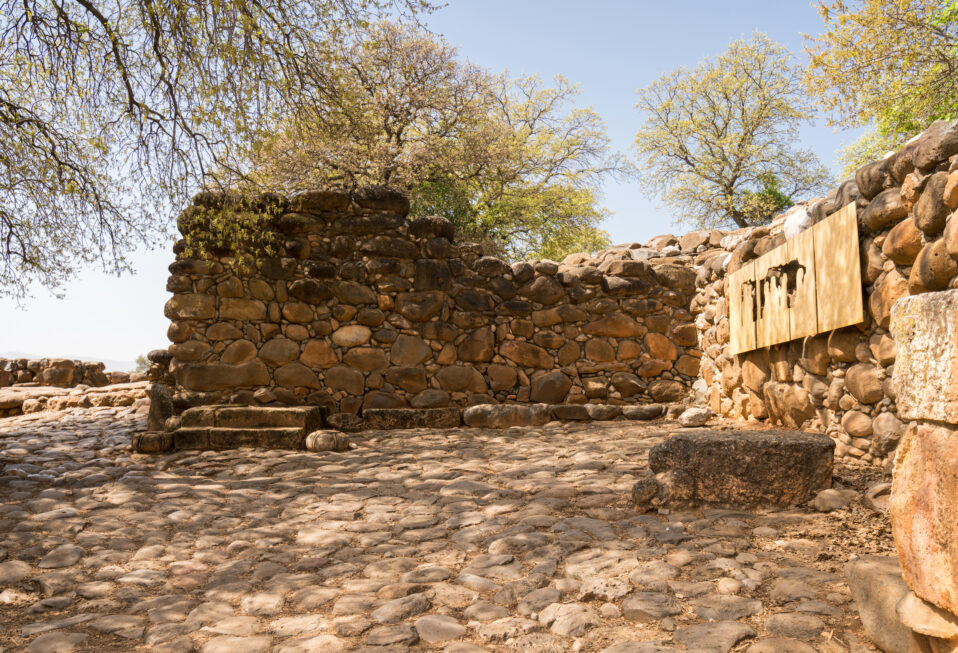By Stephen Faircloth
The ancient city of Dan marked the northernmost boundary of Israel, often described in Scripture as the land stretching “from Dan to Beersheba.” Situated at the foot of Mount Hermon, Dan was blessed with abundant water from the springs that form one of the headwaters of the Jordan River. This abundance gave the region its lush beauty and made it an attractive place for settlement and trade.
Originally known as Laish, the city was conquered by the tribe of Dan after they could not remain in their allotted territory near the Philistines. They renamed it Dan, and it became a place of both blessing and sorrow. After the kingdom divided, Jeroboam I established one of his golden calves here, building a rival sanctuary that Scripture condemns as “the sin of Jeroboam.” Archaeological discoveries at Dan include the remains of this great high place, as well as inscriptions confirming the site’s role as a center of worship.
The city’s gates also hold a powerful story. Excavators uncovered a stela fragment that mentions the king of Israel and a ruler from the “House of David.” This provides remarkable confirmation outside the Bible of David’s dynasty. Even the gate itself recalls the biblical image of rulers judging at the entrance to the city, a place where power and justice were displayed for all to see.
Dan’s geography and abundance made it an influential site, but it also became a symbol of misplaced trust. Instead of allowing the springs and fertile land to remind them of the Lord’s provision, the people turned to idols. What God had given as a gift was twisted into a substitute for His presence. The prophet Amos later rebuked those who swore by “the god of Dan” (Amos 8:14), showing how deeply idolatry had taken root.
The history of Dan invites us to pause and ask where our own loyalties lie. Do we cling to the blessings while ignoring the One who gave them? Do we build our own “high places” of comfort and control, or do we let God remain the true source of life in our lives? Like the people of ancient Israel, we are tempted to rely on what we can see and touch rather than on the living God who calls us to faith and obedience.
At the same time, Dan’s story reminds us of God’s patience and mercy. Though the people strayed, God continued to send prophets, reminders, and calls to return. Even when His people built false altars, He never stopped desiring their hearts. That same mercy reaches us today. Wherever we have allowed idols to creep in, the invitation remains: return to the fountain of living waters.
Our blessings, like the fresh springs of Dan, are meant to point us back to God, not pull us away from Him. The ruins of Dan whisper this truth across the centuries: no substitute can hold the place of God, and no idol can satisfy like His presence.
Stephen Faircloth is the President of CBN Israel, an initiative dedicated to sharing the true story of the Jewish nation and inspiring a global community of Christians to stand with Israel and support her people in need. Our vision is to reshape the global conversation about Israel by fostering understanding, hope, and healing between Jews and Christians around the world. For more than 50 years, the Christian Broadcasting Network has supported Israel. By joining CBN Israel, you become part of this enduring legacy, transforming lives today and strengthening Christian support for Israel for generations to come.




Post a comment